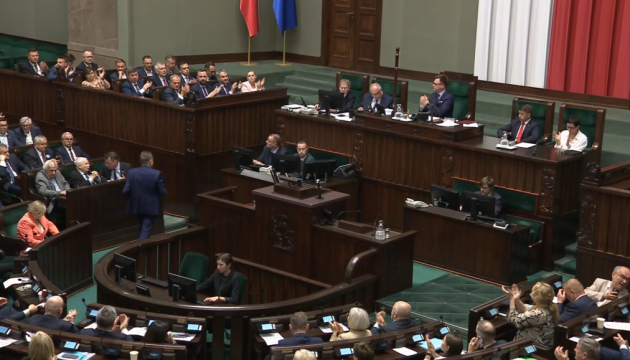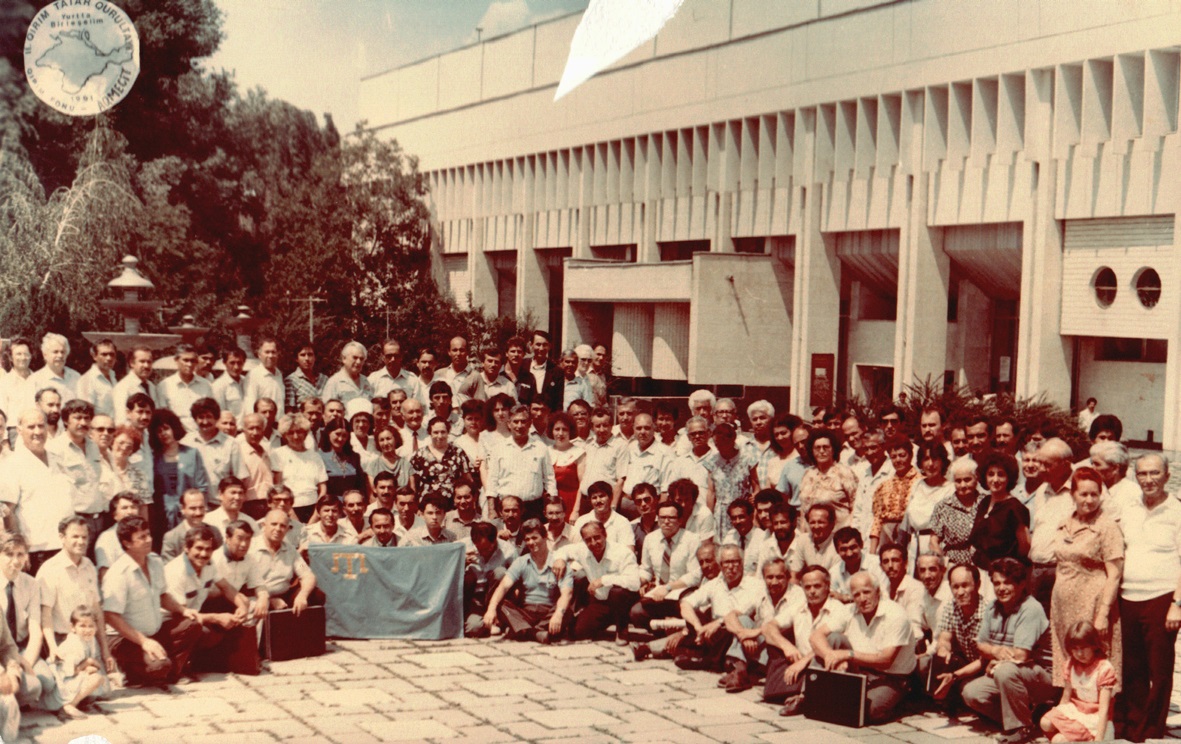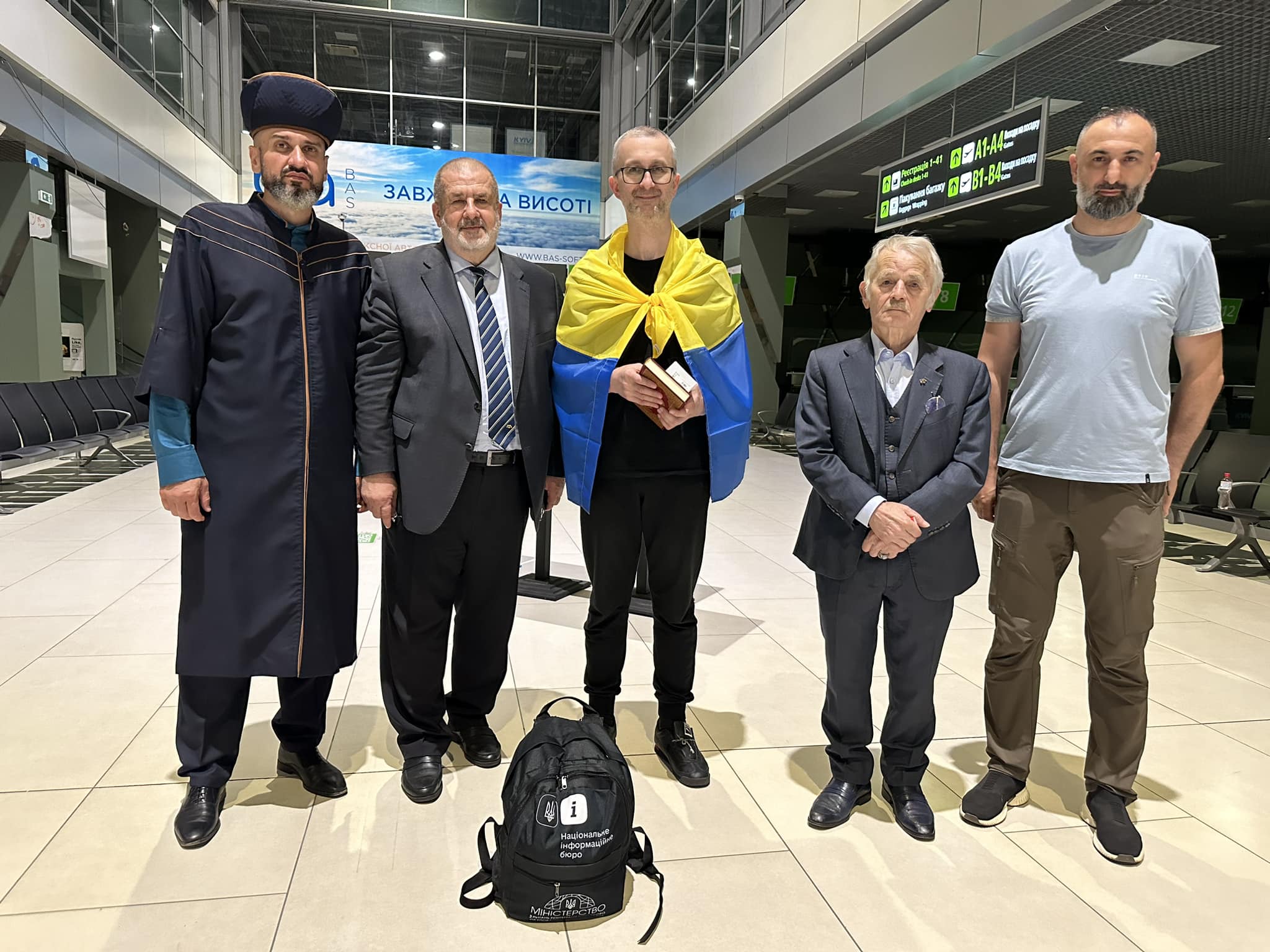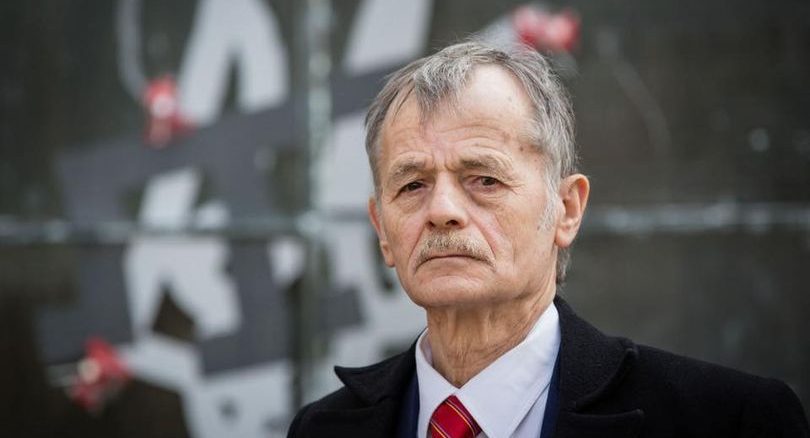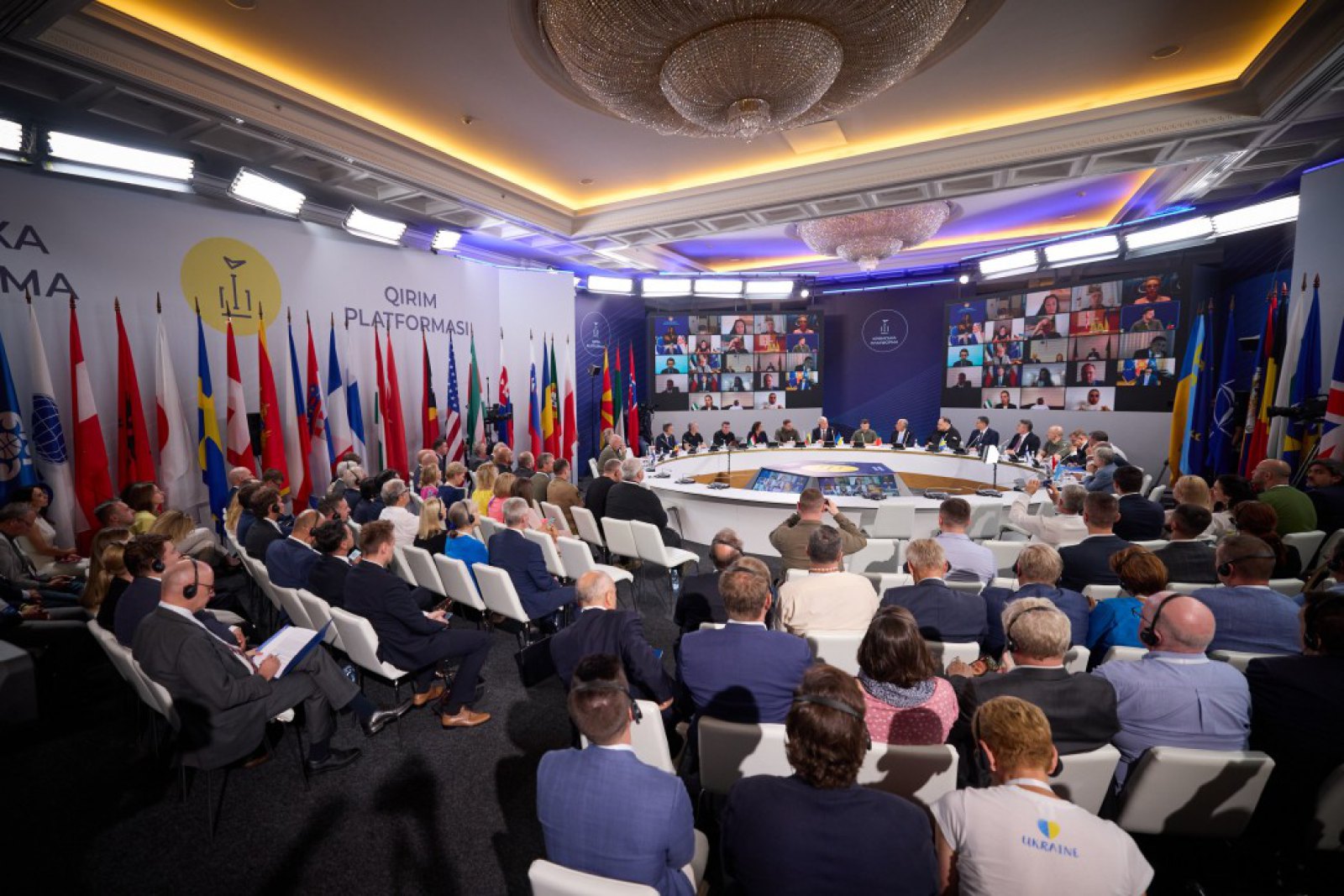Refat Chubarov’s Interview to “Glavkom”
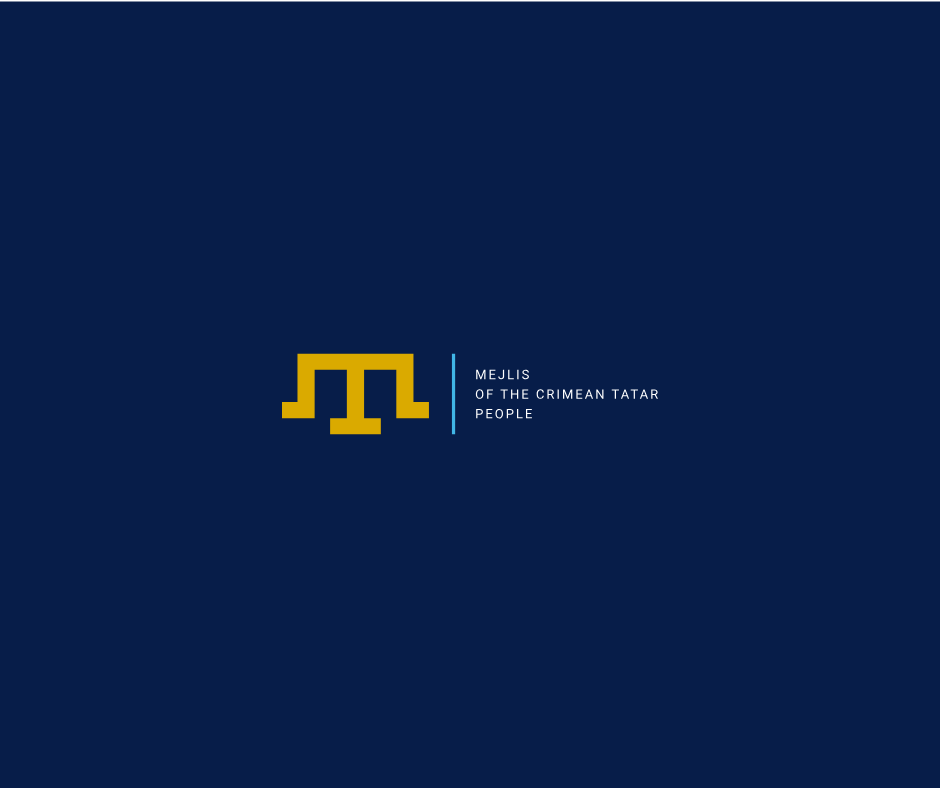
The Vice-Chairman of Mejlis, the President of the World Congress of Crimean Tatars Refat Chubarov told about the situation in the peninsular and Crimean Tatars’ view on the events in his interview to “Glavkom”.
– Mr Chubarov, the President Viktor Yanukovych in his concluding press conference stated that during the last 20 years there was a mess, squandering of land and politicking in respect of Crimean Tatar community. But today they say that the authorities make steps towards them. Do you agree that there was politicking for the last 20 years in Crimea and since Mr Yanukovich became the President the attitude to Crimean Tatars changed?
– In fact, for the last 20 years many Crimean Tatars’ hopes didn’t come true. There is no clear and open state policy in respect of the Crimean Tatar people, returning to its Homeland after the decades of exile.
Of course, part of these problems, very important and urgent problems, first of all related to their resettlement, were solved by the state. However, yet I can’t say that after Viktor Yanukovych came to power the state’s attitude to Crimean Tatars’ problems changed drastically for the better. Fro example, in 2011 the state budget of Ukraine allotted only 23 millions UAH for resettlement of Crimean Tatars, instead of 105-110 millions expected. However, in fact, Crimea hasn’t seen a penny even of this scanty sum yet.
– We had very heat events around land lately. Crimean authorities threatened Crimean Tatars almost with massacre because of land squatting. Then the authorities started a dialogue and you started solving the problem together. What progress you reached with legalization now? What are your relationships with Mr. Dzharty in this field?
– Indeed, for the last 7 years we have only accumulated the land problems. The main land issues are related to the land plots in Simferopol and its outskirts as well as in towns and villages of Yalta, Alushta and Sudak regions that were inhabited mainly by Crimean Tatars before the deportation. Tens of self-willed settlements appeared during this period, called by Crimean Tatars “samovozvrat” and the authorities called it “samozahvat”. This year we along with the Crimean authorities are trying to carry a dialogue on every land massive in order to adopt a particular decisions. The special working group was established in the Council of Ministers of Crimea headed by Georgy Psarev – one of Vasily Dzharty’s deputies. Step by step we started solving the land problem, though, not as quickly as we supposed, however, only in Simferopol and around it yet.
– Did the possible confrontations with Militia Mr Jemilev has told earlier leave behind?
– I repeat, we are just at the beginning of our way. We decided on only few land massifs. But we even didn’t come near the land in Yalta and Alushta regions and Sudak. It will be very difficult to decide on the land massifs there, because there are too many interests clashed, including very influential Ukrainian politicians. I don’t think that in the chase of Crimean land they are concerned of the problem of restoration of Crimean Tatars’ rights, including the right to land from which they were forcibly exiled 67 years ago.
That is why the further development of events will depend on many factors, but first of all on whether the interests of people returning to their Homeland will be taken into consideration when solving the land problems.
– Are you sure that you control every Crimean Tatar group? There were statements made earlier about the groups of radicals, almost field commanders that were out of Mejlis control. They are very positive about fighting for the land…
– The Crimean Tatar people has very stable system of electing bodies of national self-governance – Qurultay, Mejlis of the Crimean Tatar people and local mejlises. Correspondingly, Crimean Tatars do not require any control from outside. Adoption of these or those principal decisions followed then by the overwhelming majority of Crimean Tatars, and are almost always preceded by the open discussions, clashes of opinions. As any society, Crimean Tatars are not homogeneous is their approaches to solving of their existing problems. However, after adoption of the decision they direct all their efforts to implement them.
Of course, there are always people that keep on getting their own way after the adoption of the decision. They try to appeal to people. But, thank God such appeals have no people’s support testified by the results of the last elections of the members of the Verkhovna Rada of Crimea and local councils, during which the overwhelming majority of Crimean Tatars supported the candidates proposed by Qurultay of the Crimean Tatar people and local mejlises.
– Last year on the eve of the anniversary of the deportation Crimean Tatars looked to the future with enthusiasm. The leaders of Mejlis met Viktor Yanukovych and heard many promises. But then you were in fact ousted from the Council of the Crimean Tatar people by the President of Ukraine and the representatives of the extremist groups were included there. Did you manage to establish a dialogue with the President and his administration?
– Let me correct you a little bit. We do not call extremists those who entered the Council, though they do not share our point of view. It’s not that. Just think in the very title. The Council of Representatives of the Crimean Tatar people. It is clear that if someone wants to carry a dialogue with the Crimean Tatar people one has to fallow from the fact that the representatives of the people are nominated by the people itself.
For example, you must admit that if I want to carry a dialogue with the whole people I do not have to appoint people with whom it is probably convenient and pleasant to talk. I have to carry a dialogue with those people that authorized by this people to represent its interests before the state. That is why we do not agree with the principle of forming of the Council of Representatives of the Crimean Tatar people and stated our motives to the President of Ukraine.
It is evident that we do not challenge the right of the President of Ukraine to create any consultative or advisory bodies and include there any persons he considers necessary. Consequently, in our case the thing comes about that the principles of formation of the Council of Representatives of the Crimean Tatar people do not correspond to its designation. The way out of situation: either change the title of the council or define its tasks, or change the principles of its formation.
– Last autumn you said that there was some progress in the talks with the Administration of the President. What was its outcome?
– We were and still remain the firm supporters of the dialogue with the authorities, we are trying to bring our position to the President via his administration. But, because we didn’t reach any sufficient changes on a range of issues yet, we should admit that our motives remained unheard.
– Who are these people in the President’s Administration that oppose Mejlis and hamper of bringing your position to the President?
– Least of all I’m inclined towards telling particular names. It’s not that – there is no comprehensive state policy towards indigenous Crimean Tatar people that has its own inherent rights with which one has to discuss step by step and find the mutually acceptable forms of solution of many problems related to its return, resettlement and restoration of its rights. Until such indefinite situation will continue there will be always people in Ukraine whose position towards Crimean Tatars will contradict to the elementary ideas on the human rights and rights of peoples.
– There was disturbing news in Crimea. Let’s take the history with Cossacks who initiated a fight with “Berkut” in Feodosia, trying to install a cross at the entrance to the town. Who do you think stands behind these Cossacks and who can benefit from this?
– Let me note that there are no problems with installation of the religious symbols of any religion in Crimea if they are installed on the territory of churches, mosques, monasteries or in settled historical religious places. But we strongly object the desire of separate people or public organizations covering up with religion and trying to invade all Crimea with religious symbols.
The events near Feodosia were clear provocation. And even not between the Cossack organizations and the authorities, but rather between Cossacks and the religious center of Orthodox in Crimea. You know, Crimean Metropolitan Lazar also criticized Cossack’s actions before the installation of the cross. After that he also made statement supporting the authorities’ actions.
I think such actions have their goal to compromise Ukraine. In fact, for me the provocative installation of the cross near Feodosia is close to the events in Lvov on May 9. Here and there the very provocation was more important than people’s believes. This is a test for Ukraine and an attempt to compromise it.
– When something like this happens in Crimea one always seeking for the Russian trace, Russian money and even an attempt to ruin the resort season in favor of Russia. Are there any such elements in this situation?
– I think the relevant authorities could answer this question better. But I can certainly say that following from the comments on the situation in Feodosia in Russian society, it is evident that Russian forces stand behind these provocateurs, who whish “special relations” between Moscow and Kyiv. Let’s take Kiril Frolov who calls himself the head of the Association of Orthodox experts. After the clashes between Cossacks and Militia he stated that all Crimea has to be invaded with crosses. Such kind of statements let us tell that Cossack organizations of Crimea are supported by Russian politicians.
– From the other side there are accusations that the authorities play on Crimean Tatars’ side preventing the Orthodox from installing the crosses. Does the population of Crimea support such ideas?
– Not at all, some people just trying to stand everything on its head. No one has any problems in Crimea with allocation of land for construction of temples, excluding separate cases when the rights of Muslims, Jews and Greeks-Catholics and Catholics were violated. However, at this, after severe discussions part of them was finally solved, for example, in the case of allocation of land plots for construction of the Central Mosque and Synagogue in Simferopol.
As far as Orthodox concerns it is true that there were never problems with allocation of land for construction of churches or other religious needs. The problems appear only in those cases when the actions are taken unilaterally that infringe upon the rights and interests of other religious people.
But let’s return to other confessions. So, yesterday the members of Sevastopol city council once again refused returning the Catholic community of the city the building of the former kostel which is used today as a cinema “Druzhba”. One couldn’t help calling such decision as cynical, because the current legislation of Ukraine directly prescribes the local authorities to return the religious organizations the religious objects that formerly belonged to them.
– How do you evaluate Vasily Dzharty’s reaction for the events with Cossacks?
– In this situation the actions of authorities were timely, legitimate and adequate.
– Who do you think benefit from spreading the information about the badly disease of Mr Dzharty? How do Crimean political elites take it?
– The life of every person is predetermined by the God and only God can control it. Unfortunately, the realias of the contemporary political reality are such that some people let themselves going beyond the moral norms against their opponents in the height of the fight that testifies to the low level of public culture.
Vasily Dzharty, being a very committed person surely has both supporters and opponents. However, there’s no denying that he not only openly states his opinion, but is also ready to the dialogue with those who share other approaches to solution of the existing problems. At this, as a person who has discussed with him the general problems of the development of Crimea and the Crimean Tatar people I’d like to note that Mr Dzharty hears everyone, and if he is not agree with someone’s opinion he openly states his arguments or proposes to look for the compromise together.
At this, Vasily Dzharty shows an indefatigable energy in the position of the Chairman of the Council of Ministers of Crimea aimed at the development of Crimea. To my mind, because he personally executes administration of many decisions taken, he is one of those leaders who constantly improve themselves. Those who used to work in an old manner do not like such leader. Surely, we wish him the soonest recovery.
– The law enforcement officials banished the ex-President Meshkov from Crimea in a quite hard manner. How do you think is there any link between the activity of Cossacks and the arrival of the former Crimean separatist? Why did he come to Crimea right now?
– You know, I’m not inclined to give Meshkov’s arrival any particular significance. Meshkov represents nothing of himself now in the political sense. Though, I do not exclude that some Russian politicians have desire to destabilize the situation and create conditions for their further actions in Crimea. They try to use everything they have in their hand. Maybe, it was Meshkov who came at hand at the right time.
The things that he talked at the press conference and meetings do not fall within the limits of any international relations. The foreigner couldn’t behave himself like this in a foreign country. There were actions that could be regarded as a criminal offence. I think Ukraine dealt humanely with Meshkov just banishing him from the country.
– It is surprising that such things happen with The President Yanukovych. You see, Mr Jemilev said earlier that SBU closes its eyes on the financing of the radical Russian organizations of Crimea from Moscow…
– The thing is that Meshkov’s actions were too provocative. On the contrary, leaving this without reaction would be remained incomprehensible by the whole society. Meshkov just went beyond all possible limits. That is why regardless who would be at power in Ukraine, one could take one single proper decision – banishing.
– How topical is to your opinion the threat of separatism in Crimea, or it is only an information-screen?
– The possible escalation of the separatist moods both in Crimea and other regions of Ukraine will be the consequences of moving away from Europe and drawing into the military-political orbit of Russia.
Crimean Tatars are consistent supporters of European development of Ukraine. Surely, due to their small number in the scale of Ukraine, we can’t influence on the integration of Ukraine to the EU and NATO, we can only in some extent promote to such processes. Crimean Tatars want that Ukraine became a member of the EU, because we understand that we could hardly count on the restoration of our rights without the democratization of the society. However, one shouldn’t make out of us the opponents of establishment of friendly relationships with our neighbors, including Russia. The main thing is that Ukraine’s aspirations to the EU were not sacrificed to such relationships.
– The local elections showed that the mixed system hit badly the positions of Crimean Tatars. Have you already worked out the strategy of participation in the parliamentary elections with mixed system?
– The elementary norms of democracy require participation of the representatives of all communities in governance of the state, both political and ethnic, religious or other. Simply speaking, the more representatives of various parts of Ukrainian society would be presented in the state bodies, including the legislative and representative body the more will be the possibility of its successful development. That is why the return to the mixed system heat, as you’ve said, not only Crimean Tatars. It would be return to the past to 2002. Moreover, the mixed system let count on the victory of the candidates from the authority in the majoritarian districts. The influence of the administrative resource increases now.
One should have left the proportional system with open lists for the democratic development of Ukraine. The voters must have possibility to influence on the order of the candidates in the list themselves. Surely, regardless the election system we will take part in it. There is no doubt that the political forces that adhere to the principles of the democratic development of Ukraine will remain our partners.
– You are talking mainly about “Batkivschina”?
– As you know, there is a wide and big spectrum of the political forces in the democratic camp. Unfortunately, one shouldn’t count on their consolidation. I think that we will have to make a hard choice between the parties that will participate in the elections alone.
Vitaly Chervonenko, “Glavkom”
